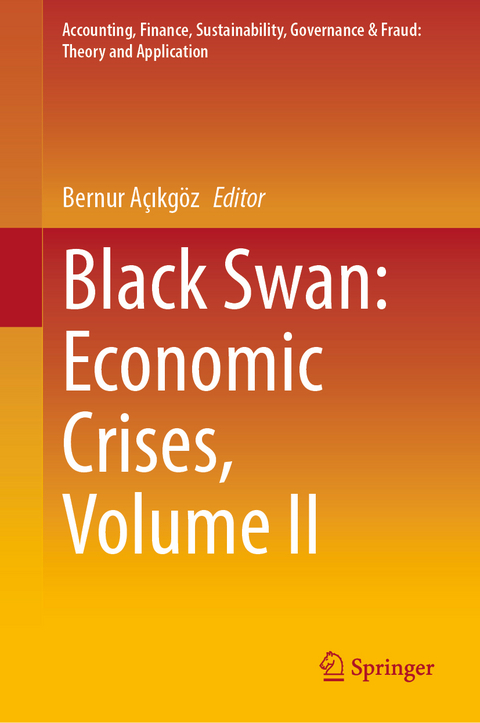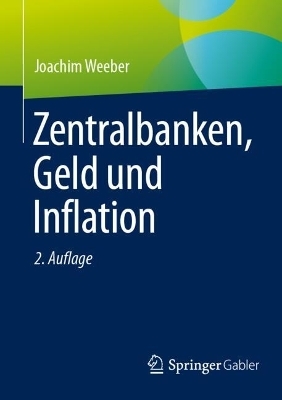
Black Swan: Economic Crises, Volume II
Springer Verlag, Singapore
978-981-99-2317-5 (ISBN)
The beginning of this book notes that crises are catastrophic periods when the consequences of economic mistakes made by governments are reflected to the public. Although economic crises are seen as opportunities in some cases, they have created a burden for the people. Some economic crises even triggered the world war. A recent example, Adolf Hitler, was seen as a hope of salvation in Germany due to the Great Depression and was brought to power.
The twentieth century, whentwo great world wars took place on the stage of history, is the witness of major economic crises as well as wars. These crises have caused social and economic paradigm shifts to be experienced much faster and more effectively than the previous centuries. The transformation of the demand-oriented economic understanding created by the Great Depression in 1929 into an interventionist social state understanding, especially after the World War Two, increased the intervention of states in the socioeconomic field. In this period, the reconstruction of the countries, the development of social welfare services, the assurance of human rights, the acceleration of industrialization and development, and the economic growth and income growth of the countries resulted in the golden age enjoyed by the societies of the period.
The interventionist social state, seen as a prescription and opportunity in the past crisis, was one of the cornerstones of the crisis in the last quarter of thecentury in the 1970s. Against interventionism, with the rise of neo-liberalism, financial liberalization, information society, and technological discoveries, globalization has become the new phenomenon of the age. This book examines in detail the causes, occurrences, and results of the twentieth-century crises.
Bernur Açıkgöz attended Ankara Finance High School and continued her undergraduate studies at Dokuz Eylül University, Department of Finance. She received her master's degree in Financial Law from Dokuz Eylül University. In 2006, she was awarded her Ph.D. degree from Dokuz Eylul University Department of Public Finance. Her Ph.D. thesis covered the topics of poverty and development. In 2006, she won the Harvard University Project scholarship and worked as a visiting professor at Harvard University. In 2009, she received a scholarship from the Swiss Government for a postdoctorate degree in economics at the University of Neuchatel/Switzerland and taught courses at Bern Universities. She then began to work in the fields of experimental economics and game theory and for three consecutive years as a guest lecturer in the economics laboratory of the Montpellier University in Montpellier, France. Afterward, she went to Missouri University, Indiana University, andArizona University with a scholarship from Missouri University. She then worked as a visiting professor at the University of East Anglia and took some courses from Exeter Universities in the UK with a Tubitak scholarship. She has published books, articles, and papers on foreign direct investments, economic growth, panel econometrics, experimental economics, and game theory. She is currently working at the Department of Public Finance and Financial Management at Izmir Katip Çelebi University/Turkey. In addition, Açıkgöz teaches at the Department of International Trade and Finance at Izmir University of Economics/Turkey and the Department of Economics at University of Life Sciences in Poznań (Uniwersytet Przyrodniczy w Poznaniu)/Poland.
1. Introduction: General Overvıew Of Crıses Models And Fınancıal Crıses.- 2. Dutch Tulıp Manıa: Tulıp Crıses.- 3. Bengal Bubble (1669-1772) And East Indıa Syndrome (1669-…).- 4. The Danısh State Bankruptcy Of 1813.- 5. 1873 – 1896 Long Depressıon.- 6. Australian Banking Crisis of 1893.
| Erscheinungsdatum | 28.06.2023 |
|---|---|
| Reihe/Serie | Accounting, Finance, Sustainability, Governance & Fraud: Theory and Application |
| Zusatzinfo | 14 Illustrations, color; 25 Illustrations, black and white; XIV, 159 p. 39 illus., 14 illus. in color. |
| Verlagsort | Singapore |
| Sprache | englisch |
| Maße | 155 x 235 mm |
| Themenwelt | Sozialwissenschaften ► Politik / Verwaltung ► Staat / Verwaltung |
| Wirtschaft ► Volkswirtschaftslehre ► Finanzwissenschaft | |
| Wirtschaft ► Volkswirtschaftslehre ► Wirtschaftspolitik | |
| Schlagworte | Black swan event • Financial Crises • Financial, fiscal and economic crises • First-generation crisis models • Second-generation crisis models • Third-generation crisis models |
| ISBN-10 | 981-99-2317-4 / 9819923174 |
| ISBN-13 | 978-981-99-2317-5 / 9789819923175 |
| Zustand | Neuware |
| Haben Sie eine Frage zum Produkt? |
aus dem Bereich


